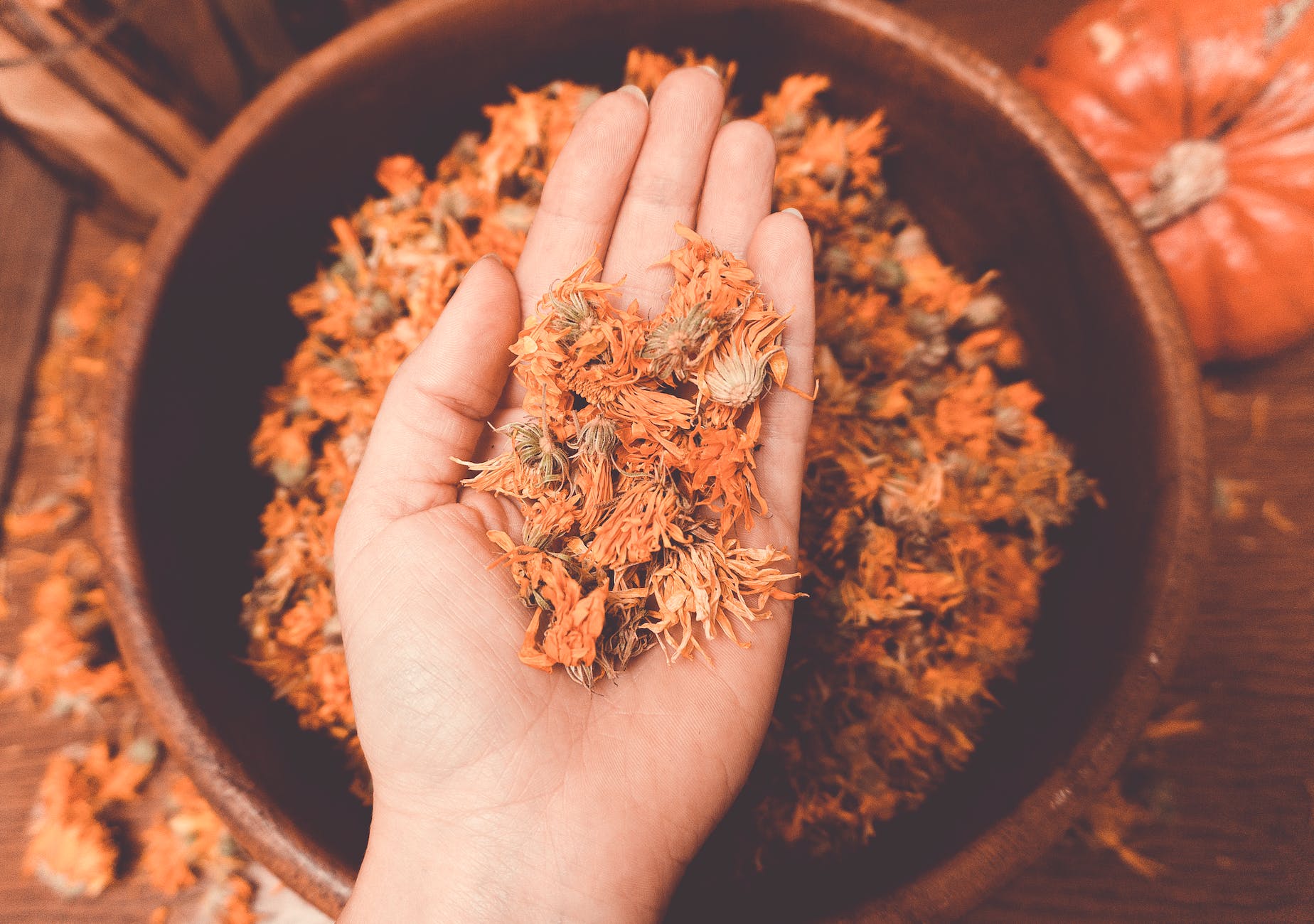Welcome to the world of herbal remedies! For centuries, herbs have been used to support health and well-being naturally. From calming chamomile to invigorating peppermint, these powerful plants offer a wide range of benefits. In this guide, we’ll explore the healing properties of five essential herbs and provide tips on how to incorporate them into your daily routine. Whether you’re a seasoned herbalist or just starting out, this guide will help you harness the natural power of herbs for holistic wellness.
Chamomile: The Calming Healer
Benefits:
Chamomile is known for its soothing and calming properties. It’s often used to reduce stress, alleviate anxiety, and promote restful sleep. Additionally, chamomile has anti-inflammatory and antispasmodic properties, making it useful for digestive issues and muscle spasms.
How to Use:
- Tea: Brew chamomile flowers into a calming tea. Drink it before bed to help unwind and improve sleep quality.
- Bath Soak: Add chamomile flowers or chamomile essential oil to your bath for a relaxing soak.
- Compress: Use a chamomile-infused cloth on your skin to soothe irritation and reduce inflammation.
Lavender: The Soothing Antiseptic
Benefits:
Lavender is celebrated for its ability to promote relaxation and reduce anxiety. It also has antiseptic and anti-inflammatory properties, making it beneficial for skin care and wound healing. Lavender’s soothing aroma can also improve sleep quality and ease headaches.
How to Use:
- Tea: Brew lavender flowers into a tea to enjoy its calming effects.
- Aromatherapy: Use lavender essential oil in a diffuser to create a relaxing environment.
- Skincare: Add lavender oil to your skincare routine to help with acne and skin irritation.
Echinacea: The Immune Booster
Benefits:
Echinacea is a powerful herb known for boosting the immune system. It’s often used to fight off colds and infections, and its anti-inflammatory properties can help reduce symptoms of illness. Echinacea is also believed to enhance overall immune function, making it a great herb for preventive care.
How to Use:
- Tea: Brew echinacea into a tea, especially at the first sign of a cold.
- Tincture: Use echinacea tincture for a concentrated immune boost.
- Capsules: Take echinacea capsules as a daily supplement to support immune health.
Peppermint: The Digestive Aid
Benefits:
Peppermint is excellent for digestive health, relieving headaches, and providing a refreshing burst of energy. Its soothing properties can help alleviate symptoms of irritable bowel syndrome (IBS) and other digestive issues. Peppermint oil is also effective for reducing tension headaches and improving mental clarity.
How to Use:
- Tea: Brew peppermint leaves into a tea to aid digestion and reduce bloating.
- Essential Oil: Inhale peppermint oil or apply it to your temples to relieve headaches.
- Culinary: Use fresh peppermint leaves in cooking for a refreshing flavor and digestive benefits.
Ginger: The Anti-Inflammatory Powerhouse
Benefits:
Ginger is a versatile herb known for its anti-inflammatory and antioxidant properties. It supports digestion, reduces nausea, and helps fight infections. Ginger is also effective for reducing muscle pain and soreness, making it a great herb for post-workout recovery.
How to Use:
- Tea: Brew fresh ginger slices into a tea to soothe digestion and reduce nausea.
- Cooking: Add ginger to your meals for a flavorful and health-boosting ingredient.
- Compress: Apply a ginger-infused cloth to sore muscles to reduce pain and inflammation.
Practical Tips for Using Herbs
Start Small
If you’re new to herbal remedies, start with one or two herbs and gradually incorporate more into your routine. This will help you understand how each herb affects your body and allows you to build a solid foundation for herbal wellness.
Create an Herbal Apothecary
Consider creating a small apothecary at home. Stock it with essential herbs like chamomile, lavender, echinacea, peppermint, and ginger. Having these herbs on hand makes it easy to incorporate them into your daily routine.
Experiment with Different Forms
Herbs can be used in various forms, including teas, tinctures, essential oils, and fresh or dried. Experiment with different forms to find what works best for you.
Listen to Your Body
Pay attention to how your body responds to different herbs. Everyone is unique, and what works for one person may not work for another. Adjust your usage based on your personal experiences and needs.
Incorporating herbs into your daily routine can significantly enhance your holistic wellness journey. Whether you’re looking to reduce stress, boost your immune system, or improve digestion, these five essential herbs offer a natural and effective way to support your health. Start exploring the healing power of herbs today and discover the benefits for yourself.
For more tips and information on holistic wellness, visit our Blog. And if you’re ready to dive deeper, check out our Herb Starter Kit to get started with all the essentials you need.


